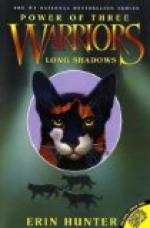“Recollect, this is just a day-dream,” he began. “But, if I was a millionaire, or if I had two hundred thousand dollars—and to me they don’t sound much different—I’d sure start a cow-outfit right away immediately at once. But I wouldn’t buy out nobody; I’d go right back and start like they did—if they’re real old-timers. I’d go down south into Texas and I’d buy me a bunch uh two-year-olds and bring ’em up here, and turn ’em loose on the best piece of open range I know—and I know a peach. In a year or so I’d go back and do the same again, and I’d keep it up whilst my money held out I’d build me a home ranch back somewheres in a draw in the hills, where there’s lots uh water and lots uh shelter, and I’d get a bunch uh men that savvied cow-brutes, put ’em on horses that wouldn’t trim down their self-respect every time they straddled ’em, and then I’d just ride around and watch myself get rich. And—” He stopped and dreamed silently over his cigarette.
“And then?” urged Mr. Dill, after a moment.
“And then—I’d likely get married, and raise a bunch uh boys to carry on the business when I got old and fat, and too damn’ lazy to ride off a walk.”
Mr. Dill took three minutes to weigh the matter. Then, musingly: “I’m not sure about the boys. I’m not a marrying man, myself—but just giving a snap judgment on the other part of it, I will say it sounds—well, feasible.”
CHAPTER IX.
The “Double-Crank."
The weeks that followed immediately after bulged big with the things which Billy must do or have done. For to lie on one’s back in the sun with one’s hat pulled low, dreaming lazily and with minute detail the perfect supervision of a model cow-outfit from its very inception up through the buying of stock and the building of corrals and the breaking of horses to the final shipping of great trainloads of sleek beef, is one thing; to start out in reality to do all that, with the hundred little annoyances and hindrances which come not to one’s dreaming in the sun, is something quite different.
But with all the perplexities born of his changed condition and the responsibility it brought him, Billy rejoiced in the work and airily planned the years to come—years in which he would lead Alexander P. Dill straight into the ranks of the Western millionaires; years when the sun of prosperity would stand always straight overhead, himself a Joshua who would, by his uplifted hands, keep it there with never a cloud to dim the glory of its light.
For the first time in his life he rode over Texas prairies and lost thereby some ideals and learned many things, the while he spent more money than he had ever owned—or ever expected to own—as the preliminary to making his pet dream come true; truth to tell, it mattered little to Billy Boyle whether his dream came true for himself or for another, so long as he himself were the chief magician.




